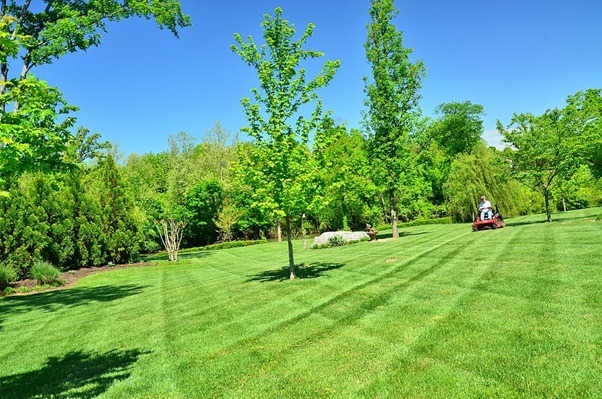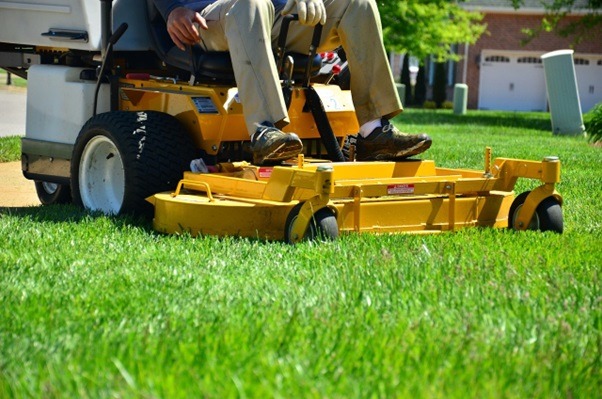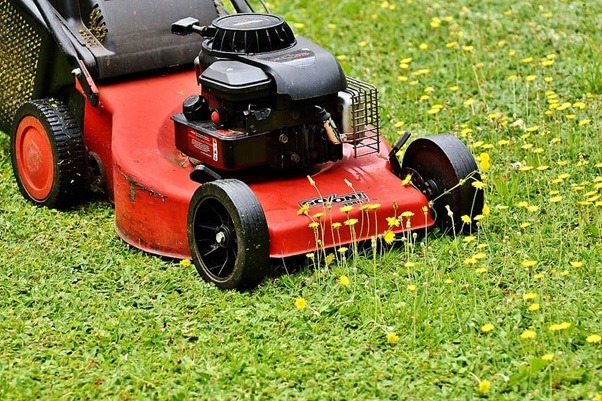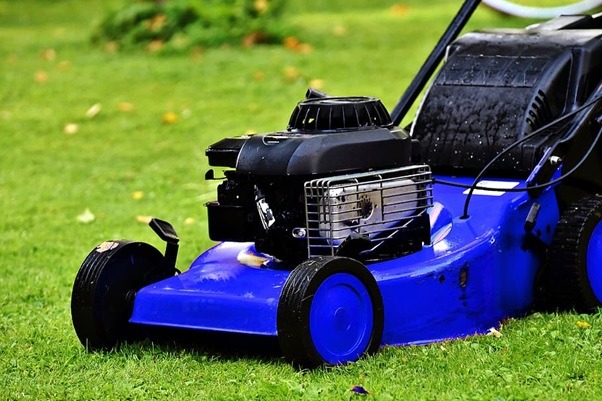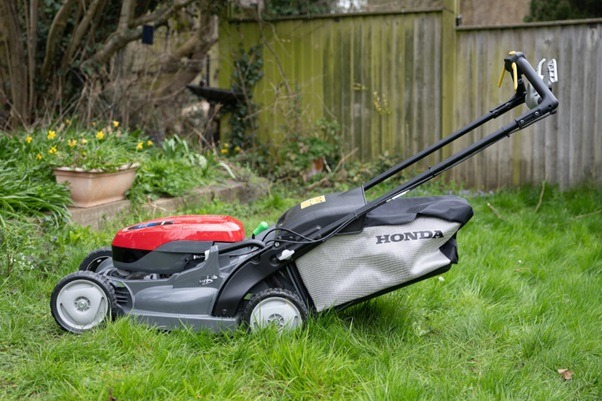Grass clippings are an inevitable byproduct of lawn maintenance. One common question among lawn owners is whether they should leave cut grasses on their yard after mowing or remove them.
Some believe that leaving the clippings on the lawn can help the grass grow, while others think it can harm the grassland.
Do grass clippings help grass grow? This article will explore the ultimate answer to this question. Let’s scroll down to get into detail!
Do Grass Clippings Help Grass Grow?
The answer is Yes! Grass clippings can help your lawn grow healthy by acting as a natural fertilizer and promoting healthy soil.
Besides, cut grasses bring many other benefits to your grassland. Let’s continue reading to discover!
Grass Clippings Promote Healthy Soil.
Using grass clippings to help your lawn grow can promote healthy soil.
As grass clippings break down, they release nutrients into the soil. These things can improve soil quality and promote healthy root growth.
Grass Clippings Act as Natural Fertilizer.
Grass clippings are a great source of nitrogen. It is an essential nutrient for grass growth.
When you leave the clippings in your yard, they are a natural fertilizer. It provides the lawn with the necessary nutrients to grow strong and healthy.
Grass Clippings Help Retain Moisture.
When leaving the grass clippings in your garden, they create a natural mulch layer. It helps to trap moisture in the soil.
It can be especially beneficial during hot summer when water quickly evaporates from the soil.
Grass Clippings Reduce Weed Growth.
Leaving your cut grasses on the lawn can also help to reduce weed growth.
By creating a natural mulch layer, grass clippings help to block out sunlight, preventing weed seeds from germinating and growing.
Grass Clippings Reduce Waste.
By leaving grass clippings in the garden, you’re also helping to reduce waste.
Grass clippings can be a significant source of yard waste. By leaving them on the lawn, you can avoid the need to bag and dispose of them.
Grass Clippings Don’t Cause Thatch Build-Up.
Contrary to popular belief, leaving cut grasses in your garden doesn’t cause thatch build-up.
The accumulation of dead grass roots causes thatch, stems, and leaves, not grass clippings.
Leaving cut grasses on the lawn can help to break down thatch over time, as they provide essential nutrients to the soil.
Do Grass Clippings Turn Into Soil?
Grass clippings can decompose and turn into soil, but the process is not immediate.
The grass clippings in your yard decompose and release nutrients into the soil.
This process may take time. During that period, the grass clippings can attract pests.
Composting the grass clippings is best to speed up the decomposition process. It involves placing cut grasses in a compost bin and other organic materials.
The decomposition process will break down the grass clippings into nutrient-rich soil used to improve the quality of your garden.
What To Consider Before Use Grass Clippings On The Grassland?
Consider the factors below before leaving cut grasses in your garden.
Length of Grass
The first factor to consider is the grass length. If your grass is too long, lawn remains in the yard can cause clumps that will suffocate the grass beneath.
However, if you mow regularly and keep the grass at a reasonable length, clippings provide valuable nutrients to help your lawn grow.
Grass Type
Different grass types will react differently to leave cut grasses in the yard.
Some types of grass, such as Bermuda and Zoysia, can better break down clippings. Meanwhile, others, like fescue, may struggle to do so.
If unsure what grass type you have, it’s best to err on caution. Besides, bag your clippings until you find out.
Weather Conditions
If the weather in your area is rainy or highly humid, leaving cut grasses in your garden can cause fungal growth. It can cause damage to your yard and health problems for you and your family.
Thus, keep an eye on the weather forecast and avoid leaving cut grasses on the grassland if conditions are particularly wet.
Mower Type
The type of mower you use can also impact whether or not you should leave clippings on the lawn.
A mulching mower can chop up the clippings into smaller pieces that will decompose fast and provide nutrients to your lawn. Watch this video to learn how it works
However, consider bagging your clippings if a standard electric mower cuts the grass and leaves clippings behind.
You can visit our website for more recommendations if you are searching for top mowers for women.
Thatch Build-up
Finally, consider the amount of thatch build-up on the lawn. Thatch combines a dead grass layer and organic matter accumulating over time. It prevents water and nutrients from reaching the roots of your grass.
Leaving clippings on your garden can contribute to thatch build-up. So if you already have a significant amount of thatch, it’s best to bag your clippings until you can address the issue.
How To Use Grass Clippings On The Lawn?
Consider the tips below to leave grass clippings in your garden properly:
Mow Regularly
If you wait too long between mowings, your grass will be too tall and thick. Also, the clippings will be too long and heavy.
It can smother the grass and create a thatch layer, preventing water and nutrients from reaching the roots.
So, make sure to mow your lawn often enough to remove only about 1/3 of the blade each time.
Mow When the Grass is Dry
Wet grass clippings are heavier and clump together, suffocating your grass and creating a thatch layer.
Mowing when the grass is dry allows the clippings to spread evenly and break down more quickly.
Use A Mulching Mower
This machine can finely cut the grass clippings and spread them evenly in your garden.
It allows the clippings to break down more quickly and release nutrients into the soil. If you don’t have this machine, use a regular mower with a mulching blade.
Final Thoughts
Grass clippings can be a valuable resource for lawn care. Leaving them in your garden can provide the lawn with natural fertilizer and other benefits.
However, ensure to mow your lawn frequently to prevent the clippings from accumulating.
By following our guidelines, you can help your lawn thrive and reduce the amount of yard waste in landfills.

